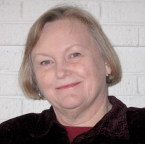Authored by Stephanie Ferrera, M.S.W.
For all of its tragic impacts on humanity, the coronavirus pandemic is presenting us with an opportunity and impetus to take time out for serious thinking. Since the time of social distancing began several weeks ago, two important Bowen theory network events have taken place: the annual Spring Conference of the Bowen Center for the Study of the Family (April 3-4) and the 37th Midwest Symposium of the Center for Family Consultation (May 1). Both were originally planned as onsite conferences but converted to online. In so doing, the conferences became very different experiences for all involved–planners, presenters, and audience members—and much was learned in the process. This essay offers thoughts on what was learned, particularly in the area of human behavior and human response to threat.
The Bowen Center conference, entitled “Creating a Climate for Change,” was designed to focus on climate change and environmental crises; the meeting took on added importance as the world awakened to the threat of the virus. Presentations from Bowen theorists addressed aspects of the human response to climate change such as migration, heightened anxiety, management of resources, examples of both cooperative and competitive aspects of human social behavior, and our relationship to the earth. The guest scientist, economist Dr. John Gowdy sparked a lively exchange of ideas on his work. He took us through the evolution of our species from its beginning 300,000 years ago when hunter-gatherers lived in small communities and found resources for life without significantly changing the natural environment, to the present global economy in which we have become “the species dominating the planet’s biophysical systems.” He proposed that the problem is not with human nature itself, which has not changed over time, but with the economic forces that drive increasing growth and destructive impact on the planet. He has created a comprehensive set of principles and policies, a “minimum bioeconomic program,” to guide us to responsible change on the individual, community, and institutional levels.
The CFC faculty responded to the social distancing rules by reinventing the original plan for the Midwest Symposium. Three leading Bowen scholars, Dr. Michael Kerr, Dr. Daniel Papero, and Dr. Robert Noone, were invited to present and discuss their work. If I were to try to capture the essence of the thinking of this day in a word, I would choose the word, complexity. Living systems are complex systems and cannot be adequately grasped by cause and effect thinking. To understand complexity calls for systems thinking, which searches for and identifies the variables entailed and the relationships between the variables. The three presenters addressed complexity as it applies to cancer, to differentiation of self, and to the brain as it has evolved in the context of the multigenerational family. In so doing, they demonstrated the degree of multidisciplinary study and integration of knowledge that is required to begin to see the complex workings of nature.
We are in a historic time that can and must be a time for the advance of science and systems thinking, and for the best adaptation to change that we are capable of. The pandemic has mobilized a response faster and farther reaching than the response to the dangers of climate change that have been known for decades. Much of the knowledge we need to confront climate change, pandemics, and the other threats that are coming our way is already in our hands. The two conferences described here are a tiny sample of the level of knowledge we already possess and are continuing to expand. It remains an open question whether we will take the mature course of using knowledge to make responsible decisions, or the immature course of dismissing knowledge and operating on impulse.




Leave a Reply